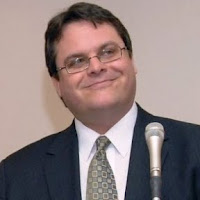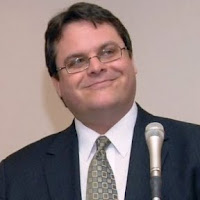This article was originally published by American Social Health Association‘s HPV News, and has appeared on the website of The Center for Sexual Pleasure and Health. To register for a free email subscription to ASHA’s HPV News, visit them online. and is adapted and reprinted with permission.
Not Just for High School Anymore: Sex Ed Across the Lifespan
Interview with Bill Taverner
 |
| Bill Taverner |
Sex ed. For many of us that conjures thoughts of the health or gym teacher fumbling through notes on the birds and the bees. The modern variety of sex ed has been much in the news the last few years, as abstinence-only education has received much attention (and many dollars, too).
Sex ed means much more than what adolescents might be learning in school, of course, and this is spurred by a growing realization that we need sexual health information our entire lives. The notion that older people have sex lives isn’t as quaint or as easily dismissed as in years past. The age of Viagra® allows countless men to stand at attention and report for duty even as they qualify for the senior menu at most any chain restaurant. Then there’s the phenomenon of “cougars” – older women hooking up with younger guys – that has such cultural cache it’s spawned everything from television shows to niche online dating sites. The idea that “40 is the new 30″ has been stretched to the point that even those in their sixth and seventh decades look, feel, and act “younger” than in generations past.
Those of us who were in sex ed classes in the Carter era and earlier recall that while we talked at length about pregnancy prevention, very little time was spent on sexually transmitted infections (STIs). For fellows in those generations, the sexual horror scenario involved knocking a girl up, not that they might get the clap while doing so. The girls probably felt much the same way. Those of us conditioned to think of condoms primarily as birth control, then, might find it easy to ditch what we called the “rubber insurance policy” as anxieties over unwanted pregnancy fade.
And what of sexuality issues beyond anatomy and physiology of doing the deed? Body image and relationship quality are also important. That’s a lot to deal with!
Bill Taverner, Director of the Center for Family Life Education, recently spoke with HPV News and shared his thoughts on the evolving world of sex ed, including the way we educate those in mid-life and beyond. The Center for Family Life Education (part of one of the very top Planned Parenthoods in the country) will host its 26th annual SEX ED conference on December 7-9 in Somerset, NJ. Themed “Sex Ed Through the Lifespan,” the conference will feature four expert keynote speakers, an array of 42 concurrent workshops accepted through peer review, and a screening of the documentary film “Let’s Talk about Sex”.
Thinking about the theme of this year’s conference, Sex ed throughout the lifespan, how do we talk to people in their 40s, 50s, and beyond about sex. What is it we need to offer them?
Not all adults understand that their sexuality changes as they grow older. Their bodies change, their sexual response changes, their relationships often change, as may their attitudes and values. Changes are often addressed through a “problem lens,” with pharmaceuticals as the solution. So older adults are expecting their bodies to perform as they did when they were 18. The changes are not only physical, but also emotional and relational. The needs one may have had from a partner in their 20s may not be the same as the needs they have in their 40s, 50s, or beyond.
Adults need opportunities to re-evaluate a lifetime of formal and informal sexual learning for how it fits within their current lives, and determine which is helpful, and discard that which is not helpful. Peggy Brick, lead author of Older, Wiser, Sexually Smarter, will lead this discussion in her keynote on helping adults form new expectations of their changing bodies and lives.
We’re still squeamish when it comes to talking about S-E-X, right? It even impacts our ability to have important discussions with health care providers! How do we make this a normal, relaxed topic of discussion?
Robie Harris, our opening keynote speaker, is the author of perhaps the most authoritative children’s book on sex, It’s Perfectly Normal. This is a book that has been translated into many languages, and I came across the Swedish version when I visited Stockholm last year. The Swedish title, På Tal Om Sex, bore little resemblance to the American title, so I asked the librarian about it. She told me the title meant “Speaking of Sex”. This spoke volumes of the differences in how Americans and Sweden — and many other developed nations treat the subject of sex. Swedes need no convincing that sex is perfectly normal! The title only works in the United States!
It’s a byproduct of decades of societal and cultural learning. Unlike many Western European nations, America has not prioritized honest communication about sexuality on television, in print, in social media campaigns. Two decades of $1.5 billion in federal abstinence-only funds —- in a country where 70% of teens stop abstaining by the time they finish high school — means that we as a nation have a lot of catching up to do. Highly-trained sexuality educators — such as Planned Parenthood educators and other professionals who attend our conference — can be a great support for young people to have not only accurate information, but better efficacy and the skills to make healthy sexual decisions.
There’s so much to address in sex ed: sexually transmitted infections (STIs), unintended pregnancy, health relationships. How do you cover it all without people – especially school-age audiences – tuning out?
The tiny amount of time teachers are given for these important topics often forces them to use boring, didactic teaching techniques. That is why The CFLE develops teaching manuals that use highly interactive, engaging strategies. One such resource, coming out in January, is titled Game On! and has 20 such strategies for creating a fun, memorable learning experience that really sticks with the student. It’s important to reach students in meaningful ways so they retain important learning, and feel empowered with the skills needed to make healthy decisions.
Talk about trends in teaching sexual education to teens. How are our approaches changing?
Earlier this week, the New York Times Magazine posted an article that featured an educator who is doing an outstanding job teaching a sex education program at a private Quaker school. The teacher, Al Vernacchio, was a speaker at our conference last year, and will present the workshop “You’re Out, Baseball!” at this year’s conference.
His program was unique in that it is so positive, honest, and complete! It is also not the norm. While Mr. Vernacchio’s program runs six weeks, most American teachers are allowed only a few class periods. Depending on the state and school district, these lessons may be devoted to preaching abstinence as the only acceptable choice, or, if the program is permitted to address prevention of pregnancy and sexually transmitted infections, they rarely venture beyond these subjects into other important, healthy aspects of sexuality. Important elements include healthy and unhealthy relationships, gender and sexual orientation, intimacy body image, and much more.
There are some positive trends, for example new, first-time federal funding for evidence-based teen pregnancy prevention programs. While these programs fall short of complete, age-appropriate sex ed, the new funding is encouraging after two decades of funding for abstinence-only-until-marriage programs (AOUM). Still, it is disappointing that federal funding for AOUM persists, despite substantial research that they provide misleading, inaccurate, and harmful information.
Sex ed is also needed beyond the high school years, especially when the curricula are woefully inadequate in the high schools. Many of our conference attendees teach adults – from college students in their 20s to senior citizens. That’s why we adopted a theme of Sex Ed Through the Lifespan. For more go to: The CFLE’s Sex Ed Conference.





I am very amazed i visited this blog site.
kamagra